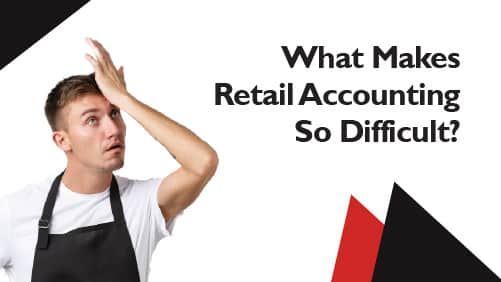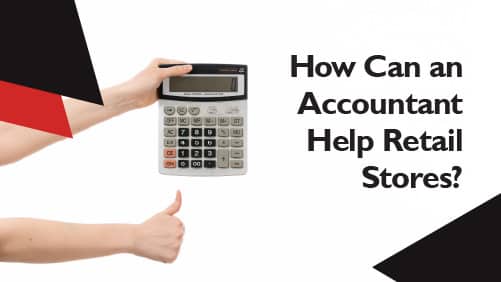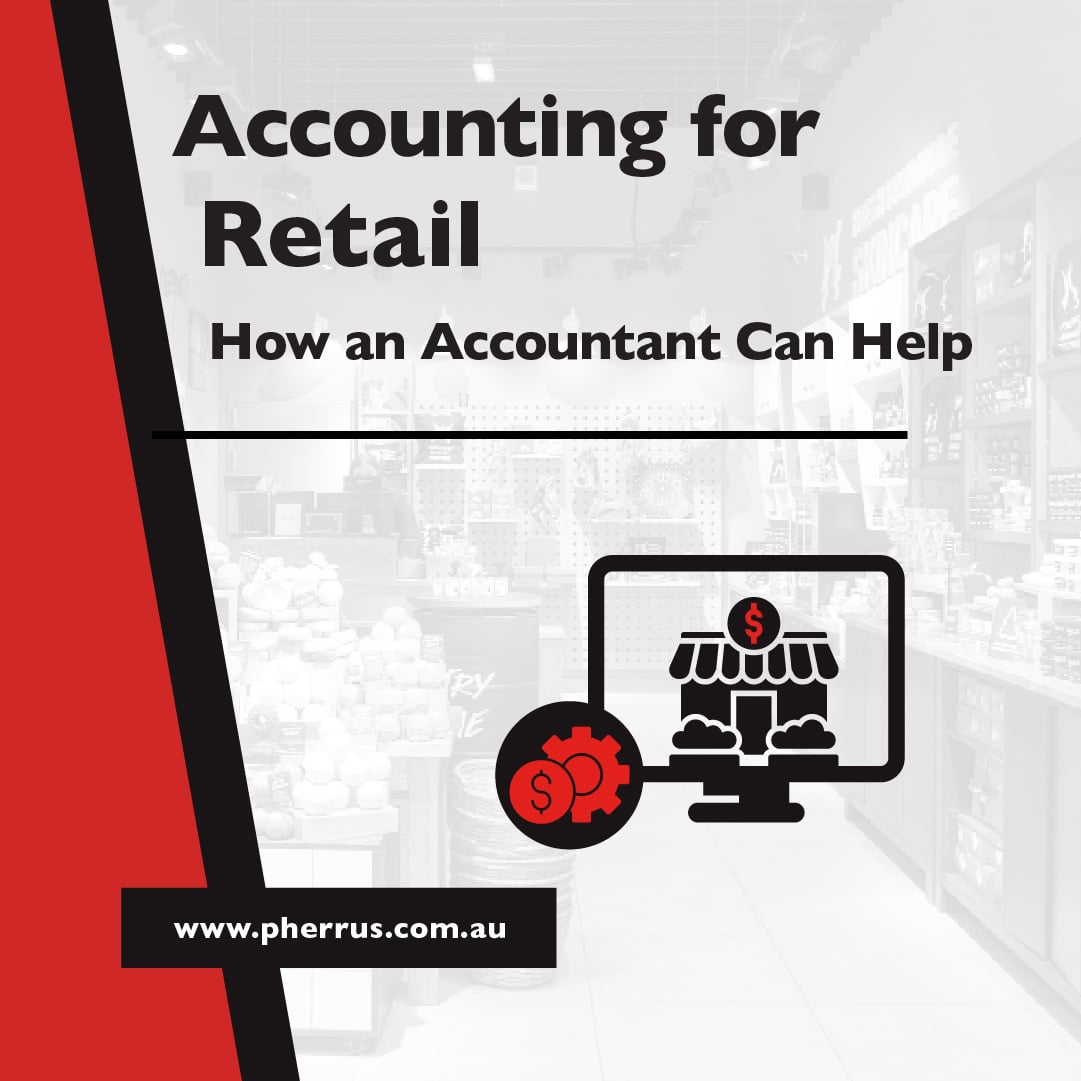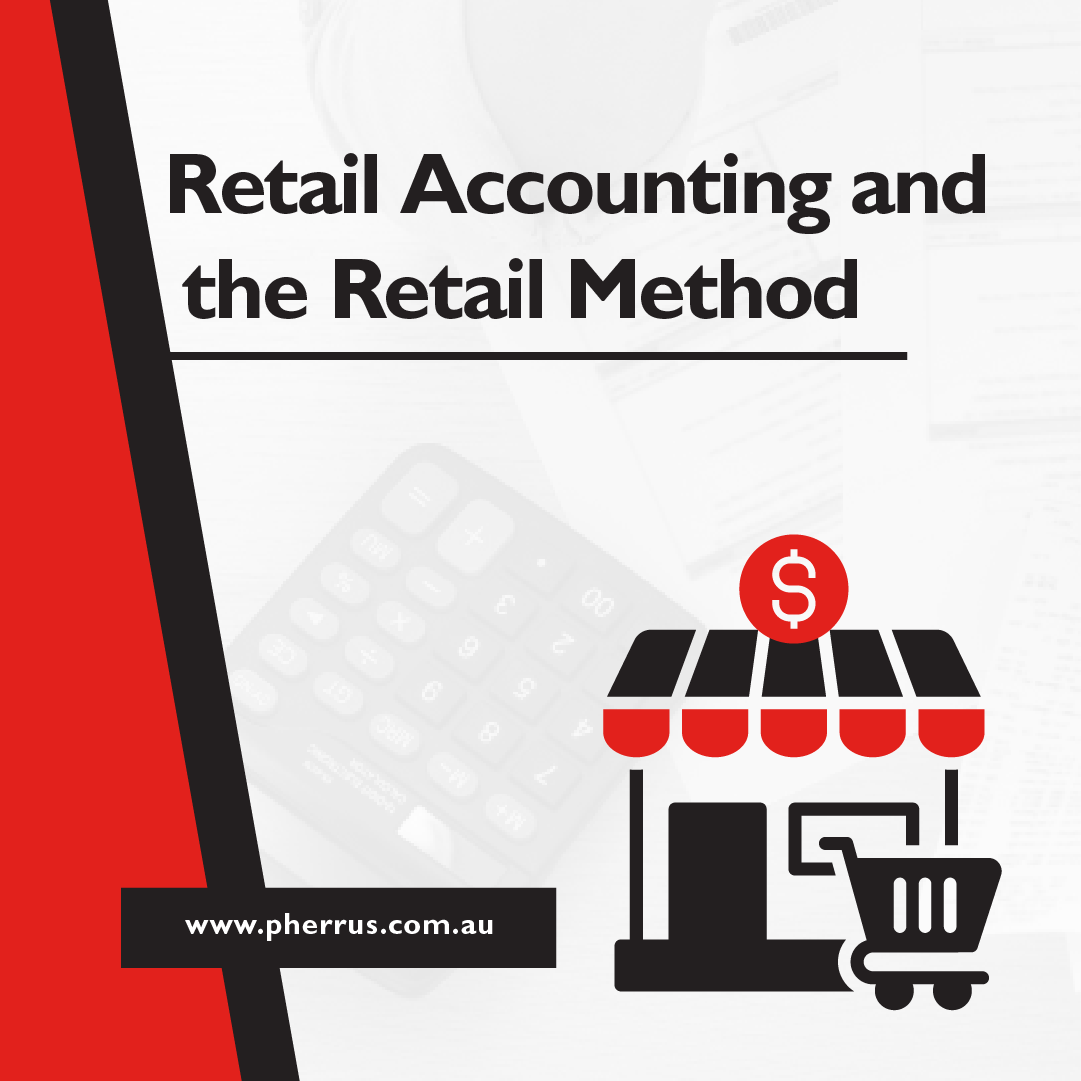The cha-ching of the cash register or the ping of an online sale is music to every retail store owner’s ears.
But as the symphony of a thriving business plays, the accompanying notes of receipts, invoices, and financial statements can sometimes strike an off-key tune.
When those complexities threaten to disrupt the harmony of your retail operations, it’s crucial to have a maestro to orchestrate the perfect financial score.
The right accountants have experience putting accounting systems for retail businesses in place to help your business.
Think of them as your maestro!
In this guide, we’ll explore the distinctive world of accounting for retail, its challenges, and how an expert accountant can make a difference.

What Is Retail Accounting?
Accounting for retail businesses is the process of recording, analysing, and reporting financial transactions unique to the industry.
Unlike other businesses, retail stores, both online and physical, deal with many daily transactions, extensive inventory management, frequent price adjustments, and specific taxation rules.
Handling refunds and returns, managing cash flow from daily sales, and tracking seasonal trends are also part of what makes accounting for retail different.

What Makes Retail Accounting So Difficult?
High Volume of Transactions
Retail transactions occur faster and in larger quantities than in other sectors.
This high volume of transactions can make accurate record-keeping overwhelming to maintain.
Data entry errors, difficulty tracking sales from multiple channels, and a need for real-time updates compound the challenge.
Mistakes in any of these areas can lead to skewed financial statements, incorrect tax filings, and loss of revenue.
Complex Inventory
Retailers deal with a constantly shifting inventory influenced by customer demands, seasonal trends, and supplier availability.
With these fluctuations, accounting for the cost of goods sold, keeping track of stock levels, and maintaining correct inventory valuations can be complicated and time-consuming.
Seasonal Sales Variations
Retail industries often experience substantial seasonal sales variations due to holidays, sales events, and changing consumer demands.
Predicting these variations and adjusting financial forecasting accordingly can be tricky.
Misjudging these trends can lead to overstocking or understocking, affecting cash flow, storage costs, and profitability.
Frequent Price Changes
Retailers often adjust prices due to promotions, discounts, or markdowns.
Each price change affects the value of inventory and gross margins and requires updates to the accounting records.
This constant flux can lead to discrepancies in financial reporting if not meticulously managed.
Tax Complexities
Australian retail businesses face complex taxation regulations due to the Goods and Services Tax (GST) levied on most goods and services sold or consumed here.
Then there are state-specific taxes, such as payroll or land taxes, which vary by region and can impact retail businesses’ overhead costs and pricing strategies.
Additionally, business owners must account for Capital Gains Tax (CGT) when selling assets.
The growth of online and international sales adds another layer of difficulty with different tax jurisdictions and import and export regulations.
Managing all taxation regulations and compliance can be tedious and challenging, especially with the risk of penalties for non-compliance.

How Can an Accountant Help Retail Stores?
Accounting Software Selection and Setup
Accounting software will streamline your retail business operations, guaranteeing accuracy and saving you valuable time.
And with real-time data at your fingertips, you can make informed decisions, optimising your business’s profitability and growth.
Accounting software for retail businesses will automate tasks like
- Invoicing
- Inventory tracking
- Financial reporting
An accountant can guide you in selecting the best accounting software for your retail business tailored to your needs, business model and goals.
They can then train you on using the software’s features, so you can harness its full potential and maintain precise, compliant financial records.
Accurate Bookkeeping
A cornerstone of successful retail operations, accurate bookkeeping means every financial transaction, including sales, returns, and expenses, is meticulously recorded and categorised.
With an accountant on your side, you can be confident in the integrity of your financial records.
They employ best practices and proven methods to maintain comprehensive, up-to-date, transparent books.
Such bookkeeping not only aids in timely financial decision-making but also ensures readiness for tax season, audits, or any financial reviews your retail store might undergo.
Financial Reporting and Strategic Financial Planning
Accountants are skilled at generating accurate, up-to-date financial reports, including
- Profit and loss statements
- Balance sheets
- Cash flow statements
These reports are vital for understanding your retail business’s financial health, measuring performance, and identifying trends.
A proficient accountant will then use these reports to assist with budgeting, forecasting, setting financial goals, and assessing financial risks.
Such strategic planning aims to help you anticipate expenses, maintain and grow profitability, and make smart financial decisions to support your business’s stability and future success.
Tax Return Submissions and Future Tax Planning
Accountants are pivotal during the tax season, preparing and submitting accurate tax filings on time.
They compile essential financial records and utilise applicable deductions and incentives.
With their expertise, you can trust that your business complies with all relevant tax regulations, including GST and Capital Gains Tax (tax on the profit from the sale of a non-inventory asset associated with the business, like property or shares).
Compliance is vital to avoid penalties, fines, and audits.
Accountants also provide year-long tax advice to reduce your tax burden and increase potential rebates.
Their tax planning strategies can include
- Optimising financial transactions.
- Leveraging all eligible deductions and incentives.
- Assessing the implications of evolving tax rules on your business’s financial health.
Inventory Management
Proper inventory accounting is necessary for identifying shrinkage, controlling costs, and making strategic purchasing decisions.
‘Shrinkage’ refers to the loss of products between the point of manufacture or purchase from a supplier and the point of sale.
This discrepancy can result from theft, supplier fraud, damages during transit or in the store, miscounting, or administrative errors in paperwork.
An accountant can streamline your inventory accounting, ensuring the correct cost of goods sold calculations and inventory valuations.
They can identify trends in inventory turnover, highlight shrinkage, and suggest strategies for inventory control, leading to cost savings and better purchasing decisions.
Cash Flow Management
Accountants can manage your retail store’s cash flow by closely tracking income and expenses.
They can help forecast cash flow, taking into account seasonal variations and capital expenditure.
These procedures assist in planning for slow periods, responding to unexpected expenses, and investing in growth opportunities.
Payroll Expertise
Handling payroll for your retail staff involves more than just distributing salaries.
It encompasses understanding and managing tax withholdings, superannuation contributions, and complying with employment laws.
With their expertise, accountants can manage your payroll so your staff is paid correctly and on time every time while meeting regulatory requirements and avoiding potential pitfalls.
Audit and Financial Review Assistance
Audits and financial reviews are daunting for business owners, so having a reliable and capable accountant is essential.
Your accountant will get all documentation in order, providing a clear record of your financial operations and transactions.
With their thorough understanding of audit processes and requirements, your accountant can guide you through each step, addressing reviewer concerns and minimising potential discrepancies.
The involvement of an accountant bolsters the credibility of your financial statements and reduces the stress associated with these rigorous assessments.

Does Your Retail Store Need Accountant Assistance?
Whether dealing with a high volume of transactions, complicated inventory management, or navigating tax intricacies, running a retail business presents unique accounting challenges.
Don’t let accounting for retail challenges disrupt the harmony of your business operations.
Remember, with the right maestro, your business can sing in perfect pitch!
An expert accountant can handle the accounting complexities of your retail business so you can focus on providing your customers with the best retail experience.
At Pherrus, we’re here to support your retail business.
With accountants, agents, tax lawyers, and industry-specific consultants on our team, we can provide advice tailored to your circumstances.
Take the first step towards financial harmony by reaching out to us today.
Fill in our online form or call +61 (02) 9099 9109 to book an appointment at our Bella Vista office in Sydney, NSW.





